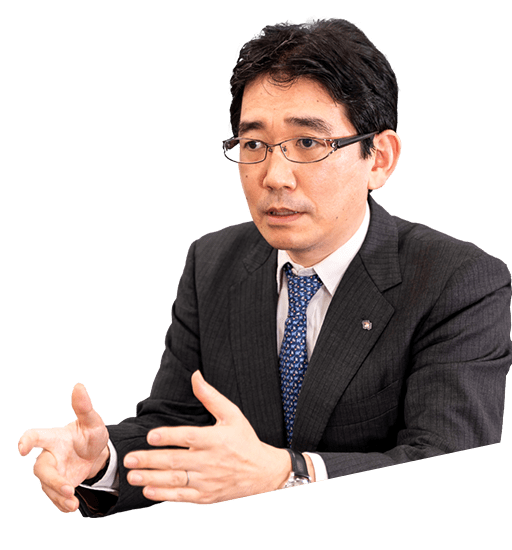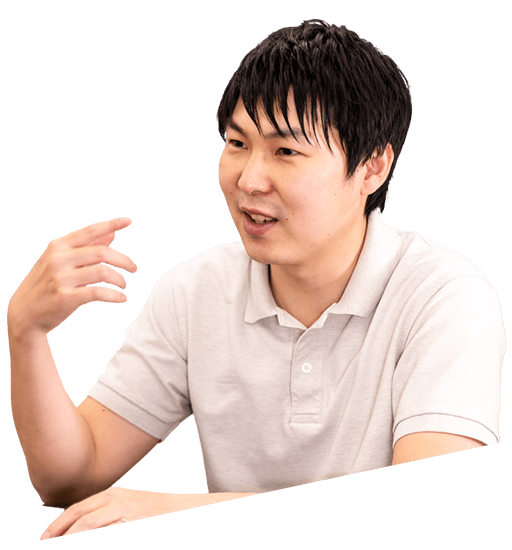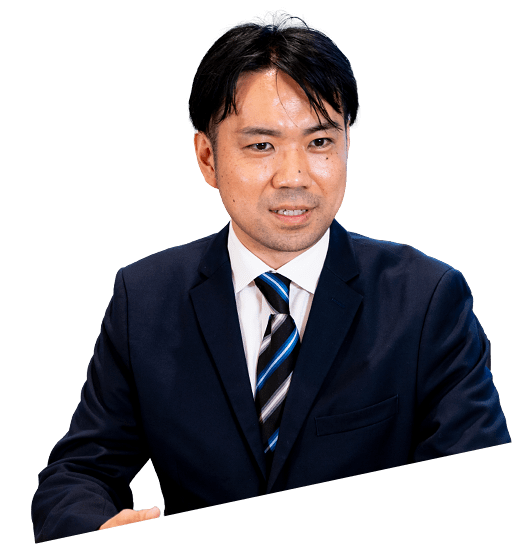Contribute to the global business market
through cross-border team collaboration
INTERVIEW / KENJIRO OYA
KENJIRO OYA
Joined the company in 2007
Kenjiro worked as a pension actuary at a trust bank after studying particle physics at a graduate school. He joined Nomura Securities in March 2007, and was based in London from November 2009 to March 2013. In the Global Markets Division, he conducts research on and develop asset valuation models used in product development and risk management of financial instruments such as interest rate derivatives.
![]()
I wanted to gain experience in the real world where theory is used.
― What kind of research were you involved in during your master's program?
I was a member of a theoretical physics laboratory. There are various fields of physics, but I was fascinated by the system of physics itself, which uses mathematics to describe natural phenomena in a sophisticated way. I was particularly interested in the field of particle physics, which models the microscopic world, because of the sophistication of its theoretical system.
― How did you choose your career path after finishing your master’s program?
I wanted to make use of my mathematical thinking, so I joined a trust bank as a new graduate in a specialized position as an actuary. An actuary is a professional who actuarially calculates the information necessary for the sound management of important social infrastructures such as life insurance and corporate pension systems. The work has a high social significance, so I was motivated to work hard. Concurrently, I obtained an official qualification as a fellow of the Institute of Actuaries of Japan.
― Why did you choose the Nomura Group as your new employer?
When I thought about my next career after becoming a certified actuary, I wanted to learn asset valuation theory that uses probability theory in addition to life insurance actuarial science based on statistics. To this end, I wanted to gain experience in a business environment where the theory is actually used in the real world. I was looking for a workplace that was close to the market, and Nomura Securities seemed to be the best place for me to work. That is how I decided to change my job.
![]()
A model I develop serves as a key element in supporting global business.
― What kind of organization is the Global Markets Division, which you are currently a member of?
The Global Markets Division is an organization that provides services to the global markets around the clock. The Global Markets Division provides domestic and overseas institutional investors and other clients with a variety of products and solutions that meet their complex needs, particularly in the area of investment management.
― Please tell us about your current main duties.
I am a member of the quants team of the Global Markets Division, where I am involved in the research and development of valuation models for fixed income and interest rate-related financial derivatives. Collaborating across offices in Tokyo, London, New York, Singapore, Mumbai, etc., the quants team develops theoretical models for financial asset valuation and implement them through programming. The Tokyo office, to which I belong, continues to make important contributions as one of the core centers for research and development of valuation models. The development of models for the valuation and management of financial assets requires knowledge of probability theory, statistics, and computer science, and I feel that this is an environment in which I can make good use of the mathematical skills I developed while studying theoretical physics.
― Please tell us about a project that left a particularly strong impression on you.
There is a financial product called "Bermudan Swaption", and I was able to produce results in a project to improve its valuation model. Since it was a product with a long history, there had already been a lot of theoretical research on valuation models as well as sophisticated models. I tried to improve them further, but I struggled without producing results. In the end, however, I succeeded in developing a new model that met the needs of users. By adding a bit of creativity through repeated scrutiny and reflection, the evaluation model I figured out became an important element to support our global business, and this gave me a great sense of accomplishment.
― What do you find attractive about your current work environment?
The team shares a common stance of "focusing on the final output.” The objective of our team is to provide the trading desk, the departments that actually conduct transactions, with a reliable pricing and risk management environment for financial products so that they can offer the best products at competitive prices in line with client needs and risk profiles. This is our common goal. Since this common objective is pervasive, even members having different ideas can discuss rationally based on the same evaluation axis, and I feel that we can quickly arrive at the best option. Another attractive aspect of the company is that each individual has a great deal of discretion in the process of producing output. I think the company is also very proactive in supporting the improvement of individual skills.
Full support for skill improvement is provided. A paper written in parallel with work was published in a prominent journal.
― What kind of support is available to improve your skills?
Upon joining the quants team, new members receive an onboarding training on basic financial knowledge and our library to acquire the knowledge necessary to start working, and then work on tasks of varying difficulty according to their aptitude. Self-development in the classroom, such as study sessions on finance and computer science, is also actively encouraged. The environment is such that by steadily completing tasks, skills can be improved without difficulty, and gradually advanced work can be performed.
― What skills have you actually learned and what results have you achieved with the support of your organization?
In order to improve my expertise, I continue to write papers on financial instrument valuation models in parallel with my main work. This activity is encouraged by my team manager and members, and there are many opportunities for meaningful discussions that can lead to improvements in the content of the paper. As a result, two of my papers were published in Risk Magazine, an internationally renowned professional journal in the field of finance. In the commentary at the time of publication, one of the authors who wrote about an asset valuation model, a paper I am very familiar with, made a favorable comment on my paper, which impressed me a lot.
― What moments in your work do you find most rewarding?
The financial asset valuation models that we build as quantitative analysts in the Global Markets Division are essential to the business of the Nomura Group and play an important role. I find it very rewarding to be in an environment where the mathematical models we devise and develop are directly linked to business results. Of course, there are many aspects of the actual business operations that cannot be captured by theory. However, the process of how to integrate these elements with theory to solve problems is intellectually stimulating and unique to the business field. The sense of accomplishment I get when I solve a difficult problem with the cooperation of my team members is exceptional. Another great attraction is working with overseas offices, through which you come into contact with employees from a variety of backgrounds and gain a lot of insights and knowledge.

Do not stop with theory. Demonstrate your skills in complex financial systems.
FUMIO KAWAMOTO

Pursuing a world’s first at the center of a paradigm shift in asset management technology. Aiming for both academic research and social implementation.
KEI NAKAGAWA

Contribute to the global business market through cross-border team collaboration
KENJIRO OYA
Application period for 2024 has ended. Thank you for your interest and hope to see you next year.
MESSAGE_Message
Significance of choosing the Nomura Group as your partner after completing your doctorate.
NEW RECRUITMENT PROGRAM_What is the Nomura Passport?
Introducing the “Nomura Passport,” a new system for doctoral students.
INTERVIEW_Career trajectories for Ph.Ds
What comes after acquiring your doctorate? The Nomura Group staff at work.
WORKSHOP AREAS_Workshop hosting departments
Here is where you can prove yourself, and here are the fields that await you.

